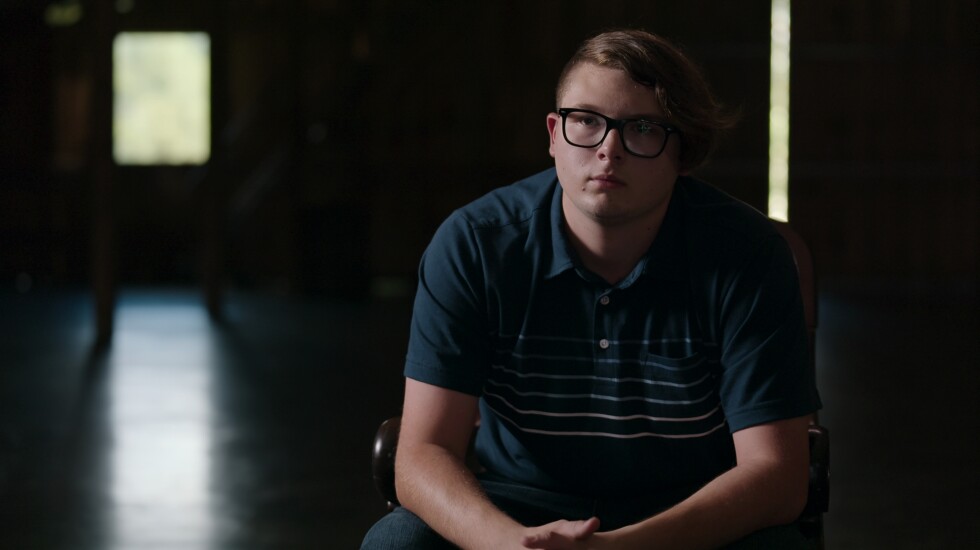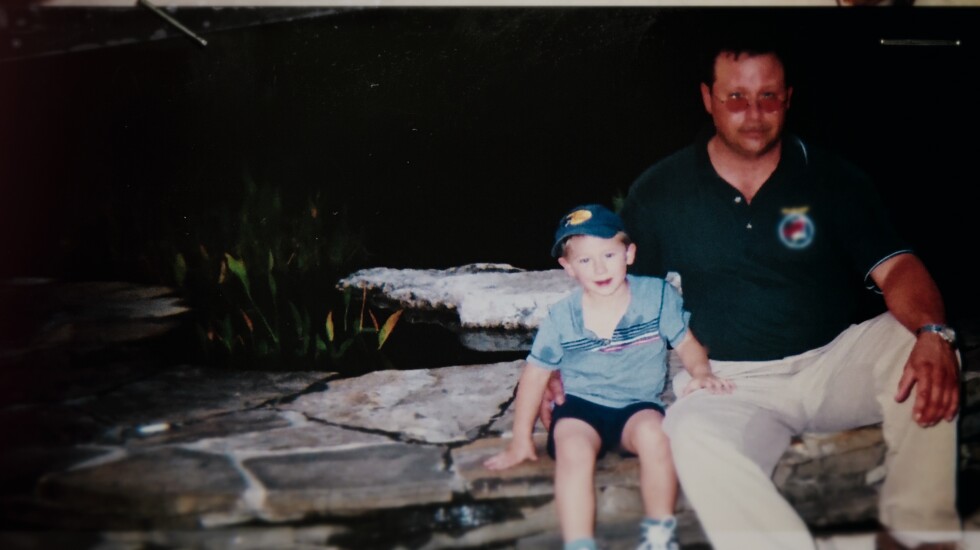
Nightmare fathers and father figures have been featured in a sobering number of documentaries this year, from “Girl in the Picture” to “Keep Sweet: Pray and Obey” to “Our Father” to “Captive Audience” as well as the fictional but fact-based limited series “Under the Banner of Heaven” and “The Staircase” — and the pattern continues with the Netflix series “I Just Killed My Dad.” This is a thorough look at a notorious case in which a 17-year-old in Baton Rouge, Louisiana, called 911 on June 3, 2019, and confessed to killing his father.
Directed by true-crime documentary master Skye Borgman (“Abducted in Plain Sight,” “The Girl in the Picture”), the three-part series begins with 18-year-old Anthony Templet sitting down for an interview and saying it’s important for him to tell his story because “my life is on the line and I want people to know that I’m not crazy, and I’m not a murderer and I’m innocent.” Cut to the audio of that 911 call, with then 17-year-old Templet saying in a matter-of-fact voice, “I just killed my dad. What do I need to tell you?”
We know the formula for these true-crime docs. After the haunting opening title sequence, we get sit-down interviews with many of the surviving principals involved in the case; archival news footage and police interrogation recordings; home video and audio; gruesome crime scene photos, and shadowy re-creations of certain events. It’s a relatively simple blueprint — but it takes a skilled director who knows how to lay out the story (and get the interview subjects to open up), as well as judicious editing, to maintain a focused and intriguing storyline. “I Just Killed My Dad” does all of that quite well.
After Anthony Templet called 911 in the middle of the night, police arrived and found the body of Anthony’s father, Burt, who had been shot and killed. Detectives who were involved in the investigation as well as East Baton Rouge Assistant District Attorney Dana Cummings talk about how Anthony showed virtually no emotion and spoke in a flat monotone. (“I don’t really like him,” says Anthony in a matter-of-fact tone during an interrogation the morning after the shooting.)

Something was ... off. During the initial interview, Anthony wasn’t sure of his birthdate or his address. In flashback sequences, we learn that Burt Templet was a controlling, manipulative man who kept Anthony out of his school, isolated him from other family members, tracked Anthony’s every movement and abused Anthony. Over the years, Anthony’s stepmother, among others, found Anthony to be strange and almost devoid of feelings. (“I don’t know if he has empathy,” says Assistant D.A. Cummings.)
What initially seemed to be a cut-and-dried case of murder was much more complicated. “Once you understand the entire picture of this young man’s life,” says one observer, “and when you understand the totality of his experiences, that he was never going to be able to escape his father, it became clear that Anthony wanted the abuse to stop, and the only way to make it stop was to kill his father.
In March of 2021, Anthony Templet was convicted of negligent homicide and was sentenced to five years supervised probation. Everyone involved in the case, including the prosecution, showed remarkable compassion and agreed this was a young man who never had a life, and deserved a chance to try to make one. As we see in a final, haunting, unforgettable shot of a silent Anthony struggling with his emotions, it’s not going to be easy.







